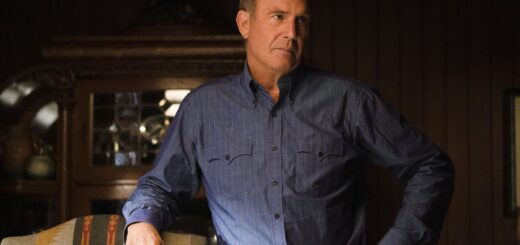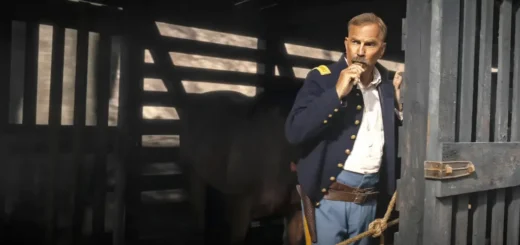From Inspiration to Creation: Kevin Costner’s Unique Moment in Cinema and Horizon’s Hurdles
For Kevin Costner, success has always come at a steep price. He embodies a bygone era, feeling a deep connection to the spirit of the Old West. His cinematic legacy is marked by roles as a cowboy, gunslinger, or hero of the American frontier. Unlike John Wayne or Clint Eastwood, Costner represents a new breed of Western actor, navigating the changing landscape of Hollywood, where sci-fi thrillers and action blockbusters dominate. Yet, against all odds, his passion for the Western genre triumphed with Dances With Wolves, which proved that Westerns still had the power to captivate audiences.
When Dances With Wolves premiered in 1990, it sent shockwaves through Hollywood. Audiences were deeply moved by its exploration of the human spirit, prompting many to reflect on their own lives after watching it. Costner’s directorial debut not only earned him critical acclaim but also swept the Academy Awards, establishing him as a force in the industry.
However, amidst the excitement surrounding the film, it’s easy to overlook the unique circumstances that led to its creation. Costner often credits his “pain in the ass friend,” Michael Blake, with the inspiration for the screenplay. During the late 1980s, Blake, frustrated with Hollywood’s scriptwriting trends, stayed on Costner’s couch while developing a new story idea. Costner’s opinions became crucial to Blake during this process. Despite teasing him about his constant complaints—“If you f**king hate scripts so much, quit writing them”—Costner eventually read Blake’s work.
After a night spent engrossed in the script, Costner called Blake and declared, “Michael, I’m going to make this into a movie.” This serendipitous collaboration resulted in a film that was truly a happy accident, a mix of chance encounters and spontaneous decisions. Such a fortuitous moment is unlikely to repeat itself with Horizon, especially in the absence of Blake’s involvement as a writer.
As for Horizon: An American Saga, its significance as a Western is debatable. While the film has its merits, it raises questions about Hollywood’s willingness to embrace original storytelling—something that is becoming increasingly rare. Costner is pouring his creativity into this four-part saga, aiming to push the boundaries of the genre. However, if the film fails to engage audiences, it risks jeopardizing the future of Westerns.
Today, the relevance of a Western seems diminished; both Hollywood and moviegoers appear disinterested in the genre. Quentin Tarantino’s films provide a modern twist on Western themes, infused with drama, striking scores, and intense action. Yet, while Tarantino’s works captivate with their blend of style and violence, Costner’s unfiltered vision for Horizon may struggle to hold viewers’ attention.
If Costner can’t captivate audiences, Horizon might be a misstep, potentially overshadowing the legacy of Westerns in cinema. The stakes are high, and while the project has the potential to breathe new life into the genre, it must resonate with audiences to ensure its success.


